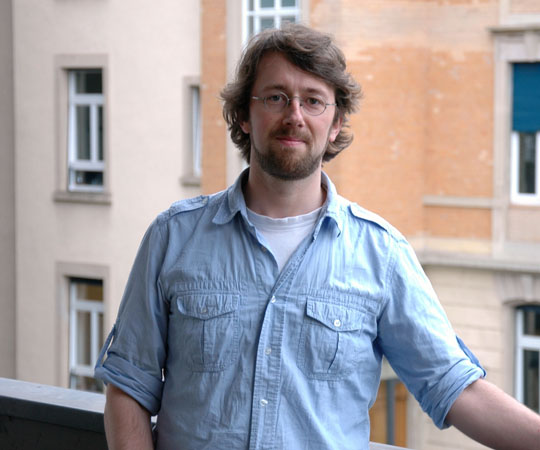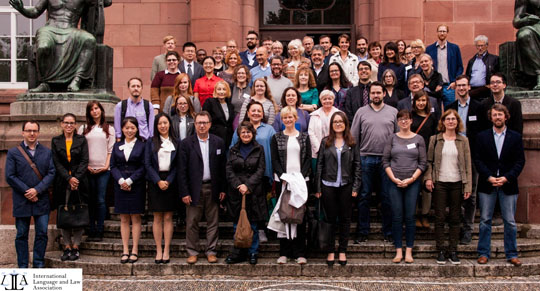Bringing together research traditions
Freiburg, Nov 03, 2017
The International Language and Law Association (ILLA) has been refounded at a conference in Freiburg. Around 150 language and legal researchers from 32 different countries took part. Under the motto “Language and Law in a World of Media, Globalisation and Social Conflicts,” participants in the lectures and workshops discussed the language and media state of the law under the influence of multilingualism, digitalization, and the worldwide increase in social conflicts. Freiburg assistant professor for Media Linguistics, Dr. Friedemann Vogel, was the chief organizer; he was subsequently selected to be the body’s president. The ILLA website informs the reader: „After an initial period of gestation, it was now time to relaunch the ILLA, to reconfigure the society on the basis of the experiences up to this point and to give it a new sustainable structure. In an interview with Jannis Behnke, Friedemann Vogel talks about the conference and explains the goals he seeks to achieve with the ILLA.
 Friedemann Vogel aims to provide an organizational framework for academic exchange in the field of language and law research.
Friedemann Vogel aims to provide an organizational framework for academic exchange in the field of language and law research.
Photo: Martin Jost
Professor Vogel, you were responsible for organizing the ILLA refounding conference – what is your background?
Friedemann Vogel: I think the conference was a great success. Research traditions met there which in some cases had developed independently of one another over decades and had practically ignored one another. At the end of the meeting we re-established ILLA - and that attracted attention from around the world. We even initiated an international network of doctoral candidates.
 It’s back: The International Language and Law Association (ILLA) celebrates its refounding in Freiburg.
It’s back: The International Language and Law Association (ILLA) celebrates its refounding in Freiburg.
Photo: Tony Franzky
The International Language and Law Association has been around for ten years – how did you come to join the ILLA?
I’ve been active in the German-language law linguistics field for about ten years, and I always regretted that the various strands of research in this area do not come closer together and help each other to develop further. When in Vancouver in 2013 I met the original initiators of ILLA, which had not spread far then, and I got this idea to bump-start the internationalization of German-language law linguistics. Under the motto of - nothing ventured, nothing gained.
What exactly does ILLA do? What are its goals?
ILLA is a specialist society which gathers together the world’s research in language and law, and provides an organizational framework for academic exchange. It is a highly interdisciplinary community, consisting primarily of linguists and jurists. But it also includes researchers from media studies, philosophy, the social sciences, law, forensics, and translation. One core area is basic research, which answers questions like: What distinguishes specialist legal communication in court? How are legal texts generated and how are they interpreted? It also covers related areas such as: How can legislation and administrative texts be optimized for the people who need to use them? What role could computer-assisted processes play in legal methodology? Or - how can forensics improve voice recognition in cases of blackmail?
What are your tasks as the new president?
Presidents of the society have an internal administrative function on the one hand, and on the other, an external, representative function. In the next two years we will be seeking to further bring together the international research community for language and legal research and to start a global conversation within it. That’s easier said than done; for instance, before the Freiburg meeting we knew nothing of the exciting activities in Africa and Russia. And when we are talking about language and law, it is also about power and control of power in society. So the question is what we legal linguists can do in practical terms to process conflicts and to promote peace between nations. Our task will be to find the greatest number of opportunities to work on these questions and to find law-linguistics answers.
What will change after this refounding?
The re-founding of ILLA will see it get much easier to conduct international exchanges between various research traditions in language and legal research - in some cases, to make it possible in the first place. On this basis we will be able to more effectively initiate and support joint projects. We will be starting on this in the first weeks after the conference.

